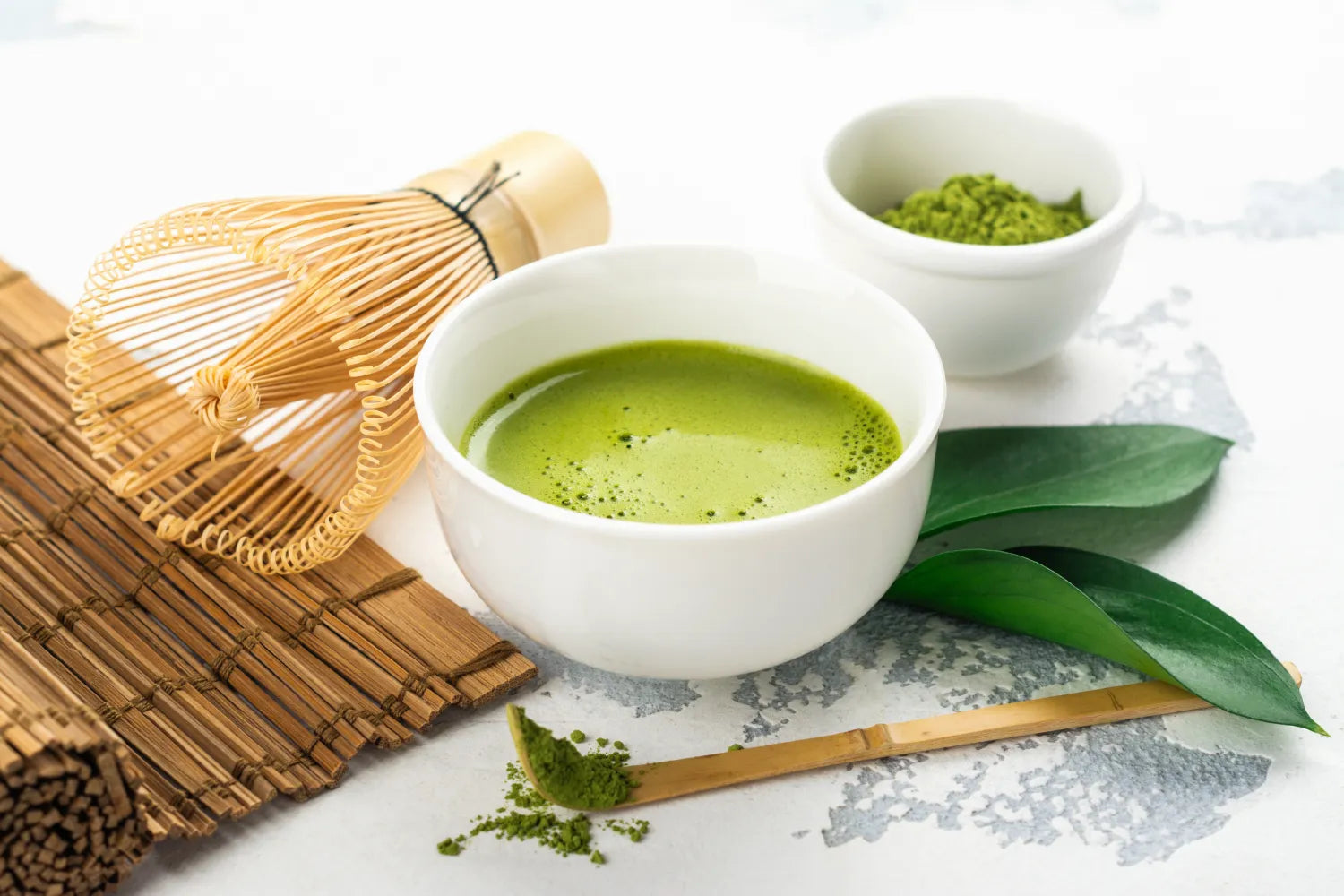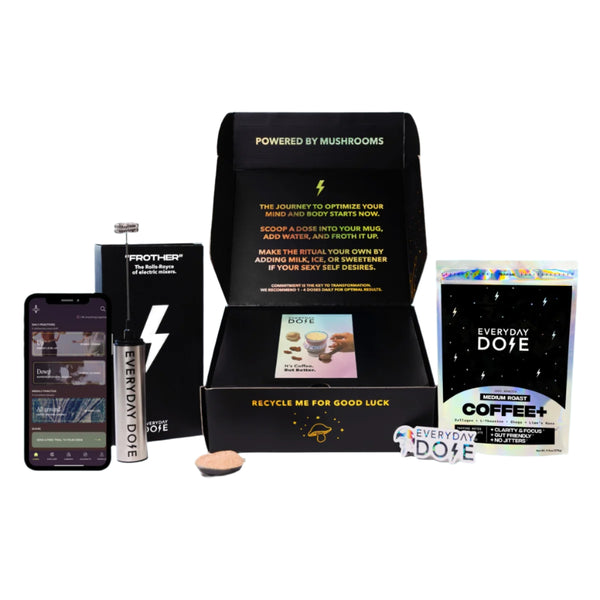What Is Matcha Made Of?

Matcha is everyone’s new favorite cafe order. It’s cute, it’s delicious, and it has amazing health benefits — who wouldn’t be on board with that? However, even if you drink matcha every day, you might not know what it’s really made of. You might know it’s made of green tea, but how?
Luckily, we consider ourselves matcha experts. Read on to learn what matcha is made of, what makes it different from regular green tea, and how to use it.
What Is Matcha Made Of?
You might be familiar with matcha as the green powder that serves as the base for your favorite latte. However, matcha is so much more than that.
Matcha is made from the leaves of the Camellia sinensis plant, which is also used to make black, white, green, and oolong tea. The differences between these teas ultimately come down to how the leaves are processed and when they’re harvested.
The tea plant grows throughout Japan and China, where it’s an important part of culture. In particular, matcha is the center of the Japanese tea ceremony.
During this ceremony, attendees thoughtfully whisk their matcha using cultural implements like bamboo whisks and ceramic bowls. The ceremony is designed to be deeply meditative, highlighting the beautiful details in everyday life that we often miss on our way from point A to point B.
How Is Matcha Different From Green Tea?
Technically, matcha is a form of powdered green tea. However, true tea experts will tell you that the two are really quite unique from each other. Here are some of the main differences between matcha and green tea.
Growing Practices
The flavor and quality of tea can be heavily influenced by where and how the tea plant is grown. If the plant is grown in fertile soil and surrounded by colder climates, then it tends to taste sweeter.
Tea plants that have been set aside for matcha production are grown in these conditions, although they are also set apart by one key element: They are grown almost entirely in the shade. By keeping the plants out of direct sunlight, cultivators can encourage higher concentrations of compounds like caffeine, L-theanine, and chlorophyll, which gives matcha its bright green color.
Timing of Harvests
There are four tea harvests that take place throughout the year, beginning in the early spring and finishing in the early fall. The more delicate teas like matcha and white tea are harvested in the earlier harvests, while robust teas like oolong and black tea are harvested in the later harvests.
As tea plants continue to mature, they grow quite bitter, which is what causes black tea’s bitterness when it’s compared to the floral notes of white tea. This effect can even be seen in individual leaves.
Ceremonial-grade matcha has a delicately sweet flavor that is purely thanks to the fact that it’s made using tea leaves from the first harvest. Matcha is also made using only the youngest leaves from that first harvest, ensuring the least amount of bitterness possible.
Preparation
This is really where the two types of tea show their differences. Regular green tea is made by steeping tea leaves in hot water. After a minute or two, you must remove the tea from the water before the leaves start to release their more bitter compounds.
This process creates a delicious infusion that has tons of health benefits — however, there really isn’t enough time for the plant leaves to impart all of their beneficial compounds. In fact, that’s kind of the point of taking out the tea bag so quickly. This can lead to a loss in health benefits.
Matcha is made by mixing matcha powder with hot water and whisking it until it begins to foam. The resulting drink is dark and opaque and has a characteristic bright green color.
While green tea can definitely have its health benefits, drinking it is like drinking tea-flavored water. Meanwhile, matcha is made so that you are actually drinking the ground-up leaves themselves. The benefits are much stronger with matcha because of this, and there are even some benefits that are unique to matcha because the leaves are not removed from the water.
What Does Matcha Taste Like?
You might be thinking of matcha as a concentrated form of green tea. If that makes you pucker your face, we don’t blame you — green tea can be pretty bitter even when it’s prepared well, let alone when it’s made poorly.
However, matcha has its own unique taste. Because of the higher levels of chlorophyll and L-theanine and lower levels of bitter chemicals, matcha has a flavor that is described as sweet, earthy, and almost nutty.
How Can You Use Matcha?
Because matcha has such an earthy flavor, it makes for a great ingredient in many recipes. Of course, we prefer to just drink our Mushroom Matcha+ plain with hot water and a splash of coconut milk.
Speaking of milk, one popular way to enjoy matcha is by combining it with steamed milk to make a matcha latte. You can also add it to smoothies for a dash of flavor and health benefits (especially if you’re using our blend, which features medicinal mushrooms, collagen, and L-theanine to support focus and gut health).
Some people even mix matcha into their food. For instance, you can use it to make overnight oats, cupcakes, pancakes, and even ice cream. The options are almost endless!
Wrapping Things Up
Matcha is a popular drink that is made by crushing up green tea leaves and mixing the resulting powder with water. Although matcha is technically made from green tea, it’s really its own drink — the flavors are different, the preparation process is different, and even the plants used for each tea are grown differently.
At Everyday Dose, we think mushrooms and tea are a matcha made in heaven. That’s why we included matcha in our Mushroom Matcha+ blend. To learn more about the ingredients in this blend and all of the benefits you can see from it, visit our blog today!
Sources:
Japanese Tea Cultivation | Japanese Tea Association
The Important Health Benefits Of Matcha Tea | Piedmont Healthcare
Start your day
The Right Way









